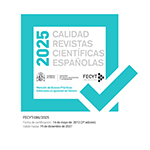The politics of persuasion: foreign powers and the first Italian newspapers
Résumé
This article studies the involvement and the relationships between diplomats and the periodical press in Italian cities during the seventeenth century. Newspapers first appeared on the Italian peninsula in the early 1640s: 1639 in Genoa, 1640 in Milan and Florence, 1642 in Bologna and 1645 in Turin. A novelty on the Italian information market, foreign diplomats turned their attention towards influencing newspaper coverage immediately. News editors would often exchange news with ambassadors, but maintaining such relationships was a delicate balancing act for all the actors involved. On the one hand, the news editors own governments certainly not always welcomed too overtly friendly relationships with representatives of foreign powers. On the other hand, not maintaining relationships with these foreign representatives could be detrimental to their own news business as competitors might easily obtain better quality news. This article studies this difficult balance of power and argues that it is crucial to appreciate these dynamics to understand how diplomats address audiences. It seeks to demonstrate these men went much further than spreading printed material to promote their patrons or employers; physical threats and attacks could be equally part of an agent’s tools to influence newspaper publishers to retract or not publish a certain piece of news.
Téléchargements
##submission.format##
Licence
La revista Cuadernos de Historia Moderna, para fomentar el intercambio global del conocimiento, facilita el acceso sin restricciones a sus contenidos desde el momento de su publicación en la presente edición electrónica, y por eso es una revista de acceso abierto. Los originales publicados en esta revista son propiedad de la Universidad Complutense de Madrid y es obligatorio citar su procedencia en cualquier reproducción total o parcial. Todos los contenidos se distribuyen bajo una licencia de uso y distribución Creative Commons Reconocimiento 4.0 (CC BY 4.0). Esta circunstancia ha de hacerse constar expresamente de esta forma cuando sea necesario. Puede consultar la versión informativa y el texto legal de la licencia.












